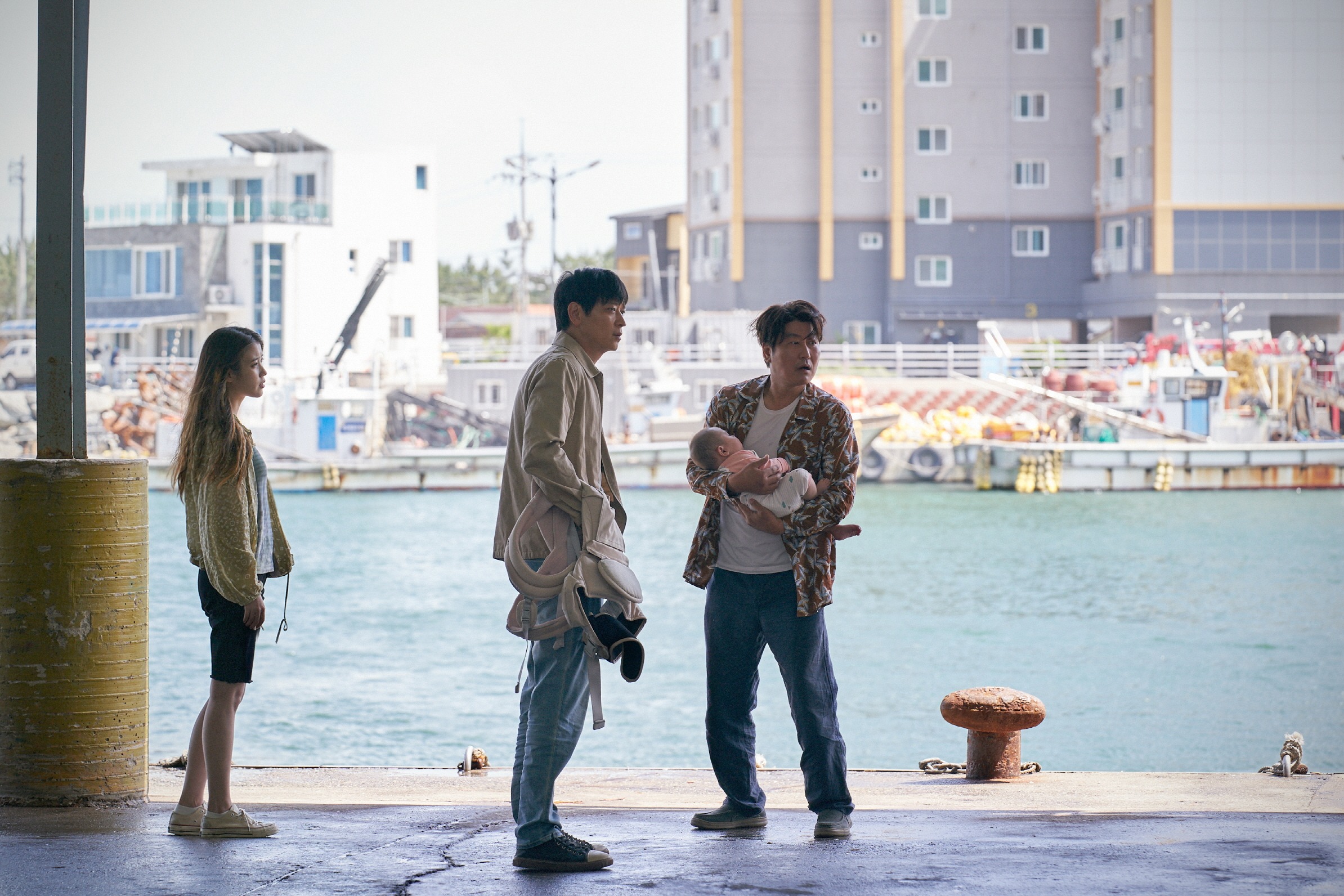
Review: Broker
By India Gwyn-Williams, University of Sussex
Reviewed as part of CINECITY The Brighton Film Festival – Duke of York’s 19 Nov 22.
Broker, written and directed by Hirokazu Kore-eda is a film of unity, portraying familial relationships, friendships and a growing romance. It begins with a wholesome and heart-wrenching circumstance – a single mother who feels by abandoning her child she is protecting him from a life he is worth more than. The baby however (Park Ji-Young), rather than being raised in an orphanage, is cared for by Dong-Soo (Gang Dong-won) and Sang-Hyeon (Song Knag-Ho), who are part of an illegal adoption programme. When the mother of the child returns for him, she discovers this arrangement and decides to join the search for his new family. The undetermined and unexpected group set off to give the child a life he deserves, while discovering more about each other, and trying to escape the threats of police and the wife of Wong-Soo’s father, who wishes to have the baby herself.
Immediately, Hirokazy Kore-eda establishes two sides of this film – there is a beautiful and sweet story of a mismatched family, but also an ugly underbelly of crime and desperation which seeps into their lives. To every character, there is a darkness which cannot be ignored. Dong-Soo, for instance, is kind, a fatherly role model to all children, yet he was an abandoned child himself. He grows to prevent any child from the same fate, as does Sang-Hyeon, who while being a loving man, is still a part of this illegality, not just the child’s benefit. The mother of the baby So-Young, played by Lee Ji-Eun, presents herself as cold and incapable of motherhood, yet she too grows to see the beauty of love and family, primarily through her care of Hae-Jin (Im Seyung-Su) a child at the orphanage who acts as a stowaway for the journey. Though their meeting and destination are things of uncertainty and instability, the journey they take highlights a deeper meaning of the film – it is not necessarily blood which binds family, but love, the belief you would do anything for any of them.
In terms of visual presentation, it is a slow moving film. Shots are long and quiet in tone, but never boring. The director allows us to see into the soft, silent moments of family and love and friendship, as if we are in the room with them. It is true that the audience begin to feel as united to the characters as they do to each other. We are never invading their dynamic, but simply observing what other people may not see when they look at a mother who abandons, two childless men who are apart of an illegal agency, and a child with no parents of his own. Though their lives and characters are flawed, they are anything but undeserving of love.
The imperfect ending of Broker is one which sums up the whole film. Though we may expect or want a happy ending for all of them, where each member finds a family of their own, it is not the reality. It is often that families are permanent, predetermined and unchanging. Yet with the existence of abandoned children and orphanages or unsuitable parents, our director perhaps wanted to speak for those who must create their own family. Though the characters who make this family are not permanent or perfectly suitable, they still grow to love each other. The final image of their picture, framed, in the car that acted as a home for all of them, is a perfect, bitter-sweet end. Hirokazu Kore-eda perfectly encapsulates the relationships of an imperfect family, which while it did not have an objectively happy end, he communicates that everyone is deserving of love and family.
